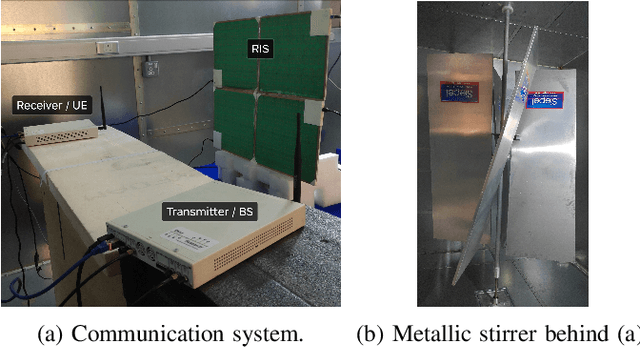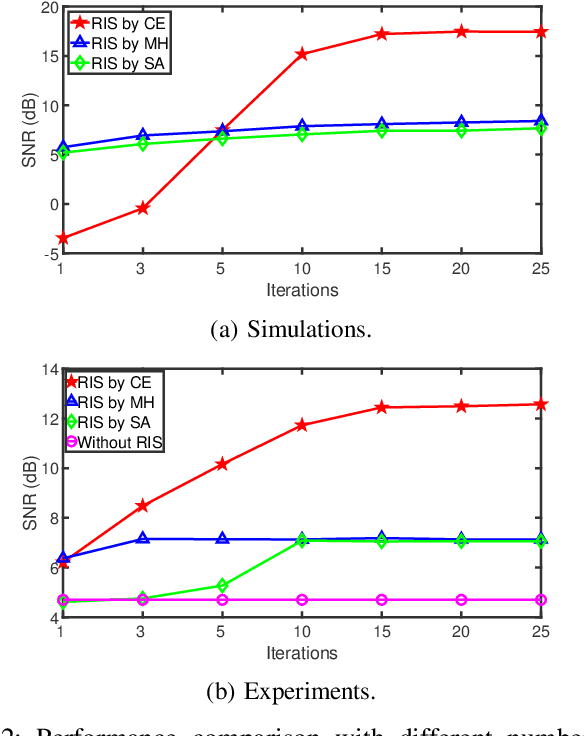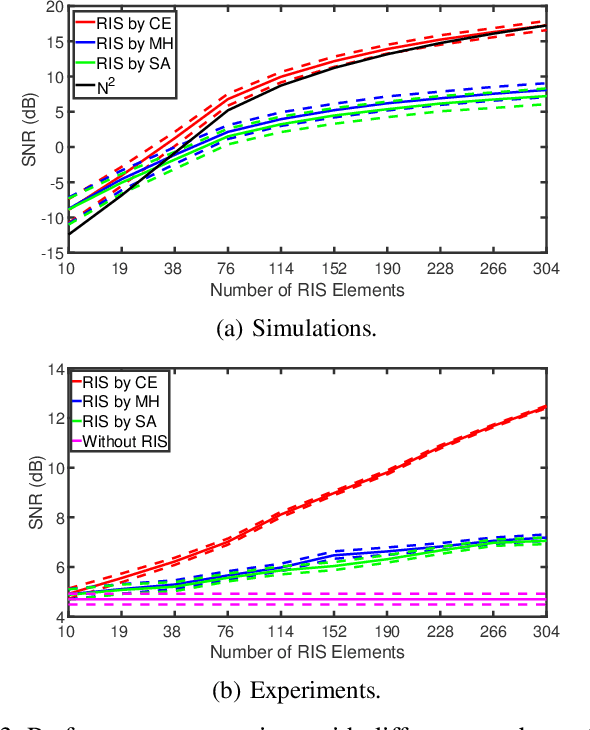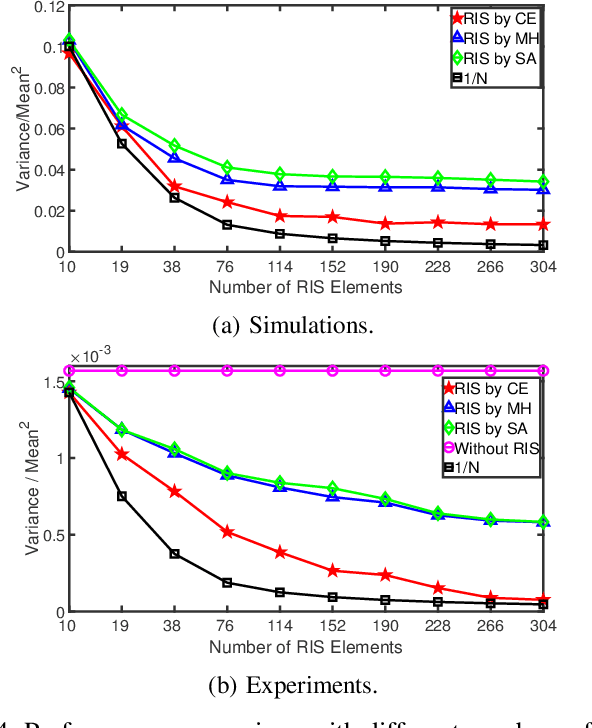Model-free Optimization and Experimental Validation of RIS-assisted Wireless Communications under Rich Multipath Fading
Paper and Code
Feb 21, 2023



Reconfigurable intelligent surface (RIS) devices have emerged as an effective way to control the propagation channels for enhancing the end users' performance. However, RIS optimization involves configuring the radio frequency (RF) response of a large number of radiating elements, which is challenging in real-world applications due to high computational complexity. In this paper, a model-free cross-entropy (CE) algorithm is proposed to optimize the binary RIS configuration for improving the signal-to-noise ratio (SNR) at the receiver. One key advantage of the proposed method is that it only needs system performance parameters, e.g., the received SNR, without the need for channel models or channel estimation. Both simulations and experiments are conducted to evaluate the performance of the proposed CE algorithm. The results demonstrate that the CE algorithm outperforms benchmark algorithms, and shows stronger channel hardening with increasing numbers of RIS elements.
 Add to Chrome
Add to Chrome Add to Firefox
Add to Firefox Add to Edge
Add to Edge